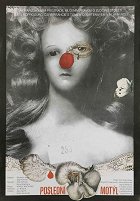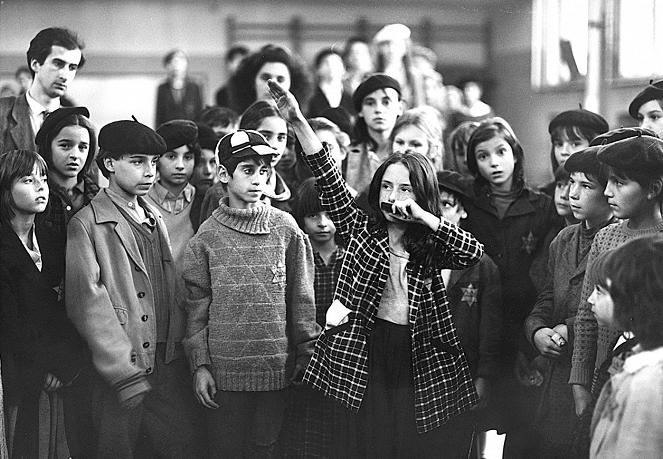Regie:
Karel KachyňaKamera:
Jiří Krejčík ml.Besetzung:
Tom Courtenay, Brigitte Fossey, Freddie Jones, Milan Kňažko, Josef Kemr, Luděk Kopřiva, Pavel Bobek, Josef Laufer, Miloš Skalka, Rudolf Pellar, Jiří Lír (mehr)Inhalte(1)
It is wartime - 1944, and Europe is brutalized by the horror of Nazi aggression and inhumanity. In the tiny Czech village of Terezin, the Nazis plan a propaganda coup to reshape the international opinion. In a master scheme to show a caring face of Nazism, Hitler has given the village to Jewish settlers as a place where they can live in freedom, reassuring a Red Cross delegation - and the world - of their peaceful intentions towards Jews. To provide a convincing "show," the Nazis have plucked the great French mime, Antoine Moreau (Tom Courtenay), from his waning career and ordered him to put on the greatest show of his life. The Reich spares no expense in providing the finest sets, orchestra and costumes. In return he will receive a generous fee and guaranteed return to Paris. But Antoine becomes driven with the need to tell the world the truth, regardless of personal risk. Although in mime he knows his lips must be sealed, now, as never before, his voice must be heard. (Verleiher-Text)
(mehr)Kritiken (2)
The scene that I liked the most and that "spoke" to me the most was the one where Courtenay plays to the people who have to transport, and Kemr accompanies him on the violin; that would be the scene where a tear fell and I understood why The Last Butterfly... otherwise the rest of the film was – admittedly, a description that doesn't really fit – peaceful. I've been to Terezín, so I even recognized some of the places (hopefully), I know what it was like there, we were taught about everything. This is just to illustrate the point, and it's a very good one.
()
Ich bin mir nicht ganz sicher, warum man nicht einfach einen Film über die Aufführung der Kinderoper "Brundibár" gedreht hat, die im Frühjahr 1944 in Theresienstadt für das Internationale Rote Kreuz aufgeführt wurde. Aber wenn ich mich darauf einlasse, mit dem französischen Mimen Antoine Moreau und seiner Version von Hänsel und Gretel zu spielen, mich nicht abschrecken lasse von der Vielzahl tschechischer Schauspieler in unsäglichen schablonenhaften Rollen (von Molavcová über Štekl bis Zedníček) ... sondern alles in einer Endmontage von Geschichten mit Happyend, zu dem es nie kam, kulminieren lasse, kann ich The Last Butterfly als einen wertvollen Beitrag zum Thema Theresienstädter Ghetto akzeptieren.
()

